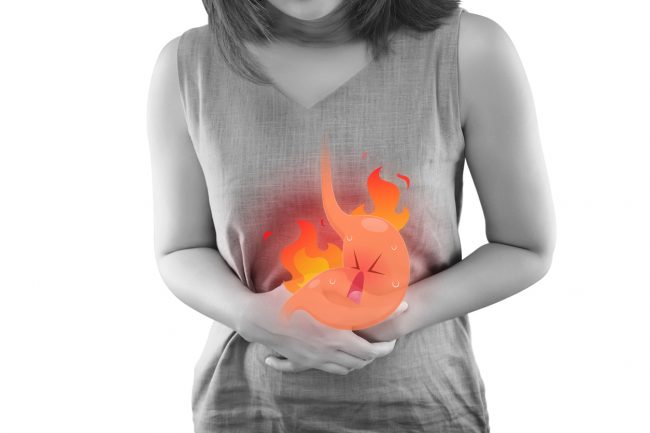Archives
Stay up-to-date and on top of your health with our e-Newsletter and receive updates on current treatments and vital health issues.
Understanding GORD – Gastro-Oesophageal Reflux Disease

Most will be familiar with the feelings of heartburn in the chest and indigestion, which are the most common symptoms of GORD, and are experienced by 15-20% of adults at least once a week. It is caused by either a permanent weakening or an intermittent relaxation of the sphincter at the lower end of the oesophagus allowing acidic stomach contents to rise up and burn the oesophagus.
Other symptoms include waterbrash – sudden excessive salivation, pain in the chest or upper abdomen, coughing, burping, nausea and even regurgitation of food.
Symptoms may be provoked by certain foods, lying down, bending or straining soon after eating.
When should heartburn be investigated?
In the setting of severe or persisting heartburn, difficult or painful swallowing, vomiting, reduced appetite, unexplained weight loss, or sudden onset of reflux symptoms, tests are required to confirm the diagnosis and to exclude other possible underlying factors.
Why treat GORD?
Treatment is aimed as much toward the relief of the discomfort as to the prevention of serious complications of the disease such as:
- Barrett’s oesophagus (pre-cancerous cell changes in the lining of the oesophagus)
- Oesophageal cancer
- Stomach ulceration.
- Stomach perforation.
Treatment of GORD:
Lifestyle changes:
- Smaller meals more frequently rather than 3 large meals can prevent the stomach from becoming overly full, thereby avoiding putting pressure on the sphincter that separates the oesophagus from the stomach.
- Avoid certain foods that are known to trigger reflux such as citrus, spicy foods, fatty foods, tomatoes, onions, garlic, chocolate.
- Avoid certain drinks including carbonated beverages, alcohol and caffeine-containing drinks such as tea and coffee.
- Remain up-right after eating to encourage food and stomach acid to remain in the stomach with the help of gravity. Finish eating 3 hours before retiring to bed, and sleep on an incline if symptoms arise when lying down.
- Avoid strenuous exercise, bending over and straining after meals.
- Maintain a healthy weight. Excess weight puts more pressure on the oesophageal sphincter.
- Quit smoking as nicotine causes undue relaxation of the lower oesophageal sphincter.
- Caution with medications – certain medications such as anti-inflammatories reduce the protective lining of the stomach, allowing stomach acid to more easily erode the stomach and oesophagus.
Medications:
There are various medications, over the counter and prescription alike, that are used to treat reflux, the choice of which depends on symptoms and test results. Where heartburn is more than just a fleeting symptom, this must be explored with your doctor to ensure that the most appropriate course of action is taken to avoid serious complications and ensure effective control of the condition.